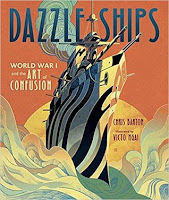March 22nd 2022 by Katherine Tegen Books
E ARC provided by Edelweiss Plus
Louisa lives in Tidewater Virginia with her father, who is a tugboat captain, mother, who runs the family's seventy acre farm, older sister Katie, who goes to Red Cross dances to socialize with soldiers and wants to go to welding school, Will, who joins up when the war effort needs men to work on ships, and Butler, who is in high school. The Depression has been hard on the family, especially on her mother, who suffers from melancholy. Despite the hardships they face, the family is very literary, and frequently quote lines from their favorite books by the likes of Alcott (hence, Louisa's name). The East Coast has been plagued by Nazi submarines, which are attacking all manner of sea going vessels. Despite this, Louisa's father has continued his work, even engaging Butler to help when Will joins up. When a tragedy occurs, Louisa's mother doesn't handle it well, but a caring relative, Cousin Belle, steps in to help Louisa deal with the situation. When Bell and Louisa are in town on an errand near Fort Monroe, they see two ships that are hit, and see that many men are in distress. They hurray back to the house and round up everyone to take their boat to the scene, where they manage to say a young British man from the water. Will this experience help the family to deal with their tragedy?
Strengths: The details of ordinary life are so well done in this, from the family growing tulips, to the Red Cross dances, to information about scarcity of certain food products. There's even a radio chat from Eleanor Roosevelt outlining household economies that families could implement. This also covers yet another topic from this era that hasn't gotten a lot of coverage in middle grade literature-- attacks on the US. I'm sure this is more common knowledge along the East Coast, but I'd never heard or read about U Boats attacking commercial vessels. The different activities of the family members, and their relationship to each other, is also nicely done. What a difficult time.
Weaknesses: I can understand why Elliott included the mother's mental health challenges, but wonder how widespread this sort of melancholy was during World War II.
What I really think: This reminded me a bit of Tunis' Silence Over Dunkerque (1962) in regards to the sea going rescue or Larson's Code Word Courage (2018) when it came to the homefront setting from the point of view of a young girl. I'm a huge fan of Elliott's work, but most of my readers who want WWII stories want ones set in Europe or the Pacific theater. If books like Cushman's War and Millie McGonigle or Bunting's Spying on Miss Mueller (1995) circulate well in your library, definitely look at this one. I'm also curious as to whether the cover design was made to deliberately echo the cover of Barton's Dazzle Ships (2017), although that was about World War I.



























No comments:
Post a Comment